On May 5, 2024, we celebrated the 132nd Commencement at University of Puget Sound. Congratulations, Class of 2024!
Go to GradImages and search by last name to find your ceremony photographs.
On May 5, 2024, we celebrated the 132nd Commencement at University of Puget Sound. Congratulations, Class of 2024!
Go to GradImages and search by last name to find your ceremony photographs.

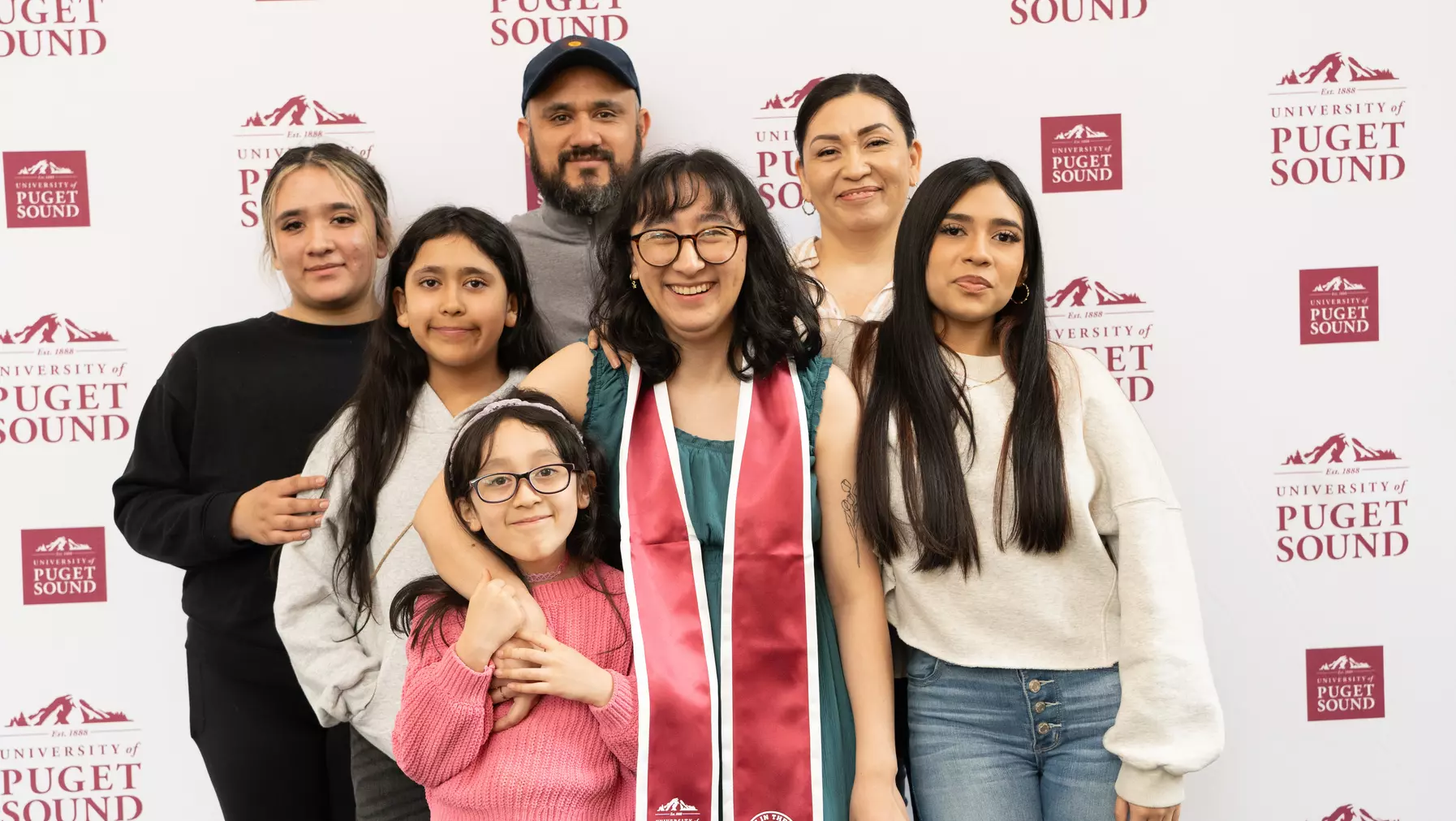
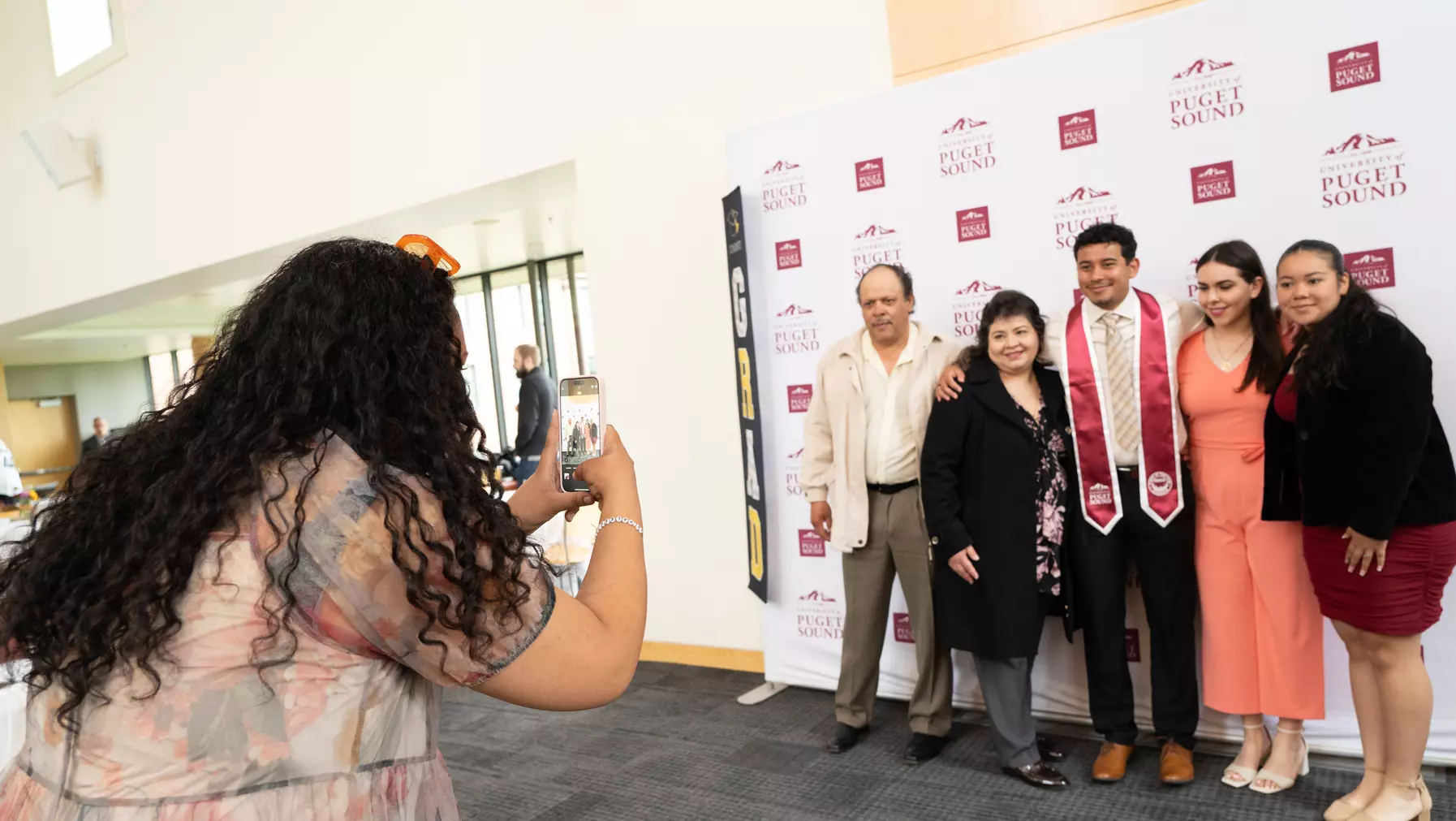
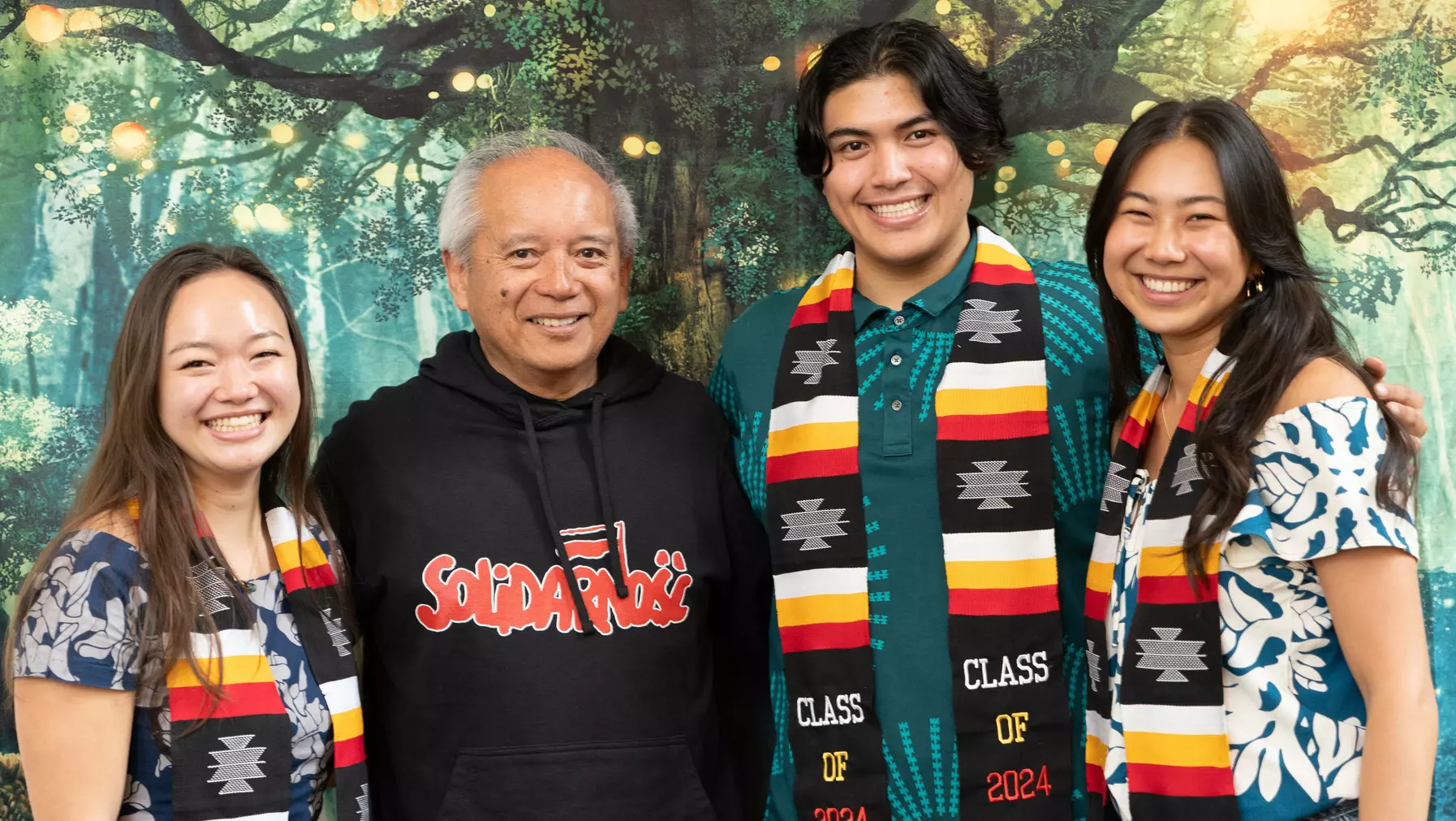
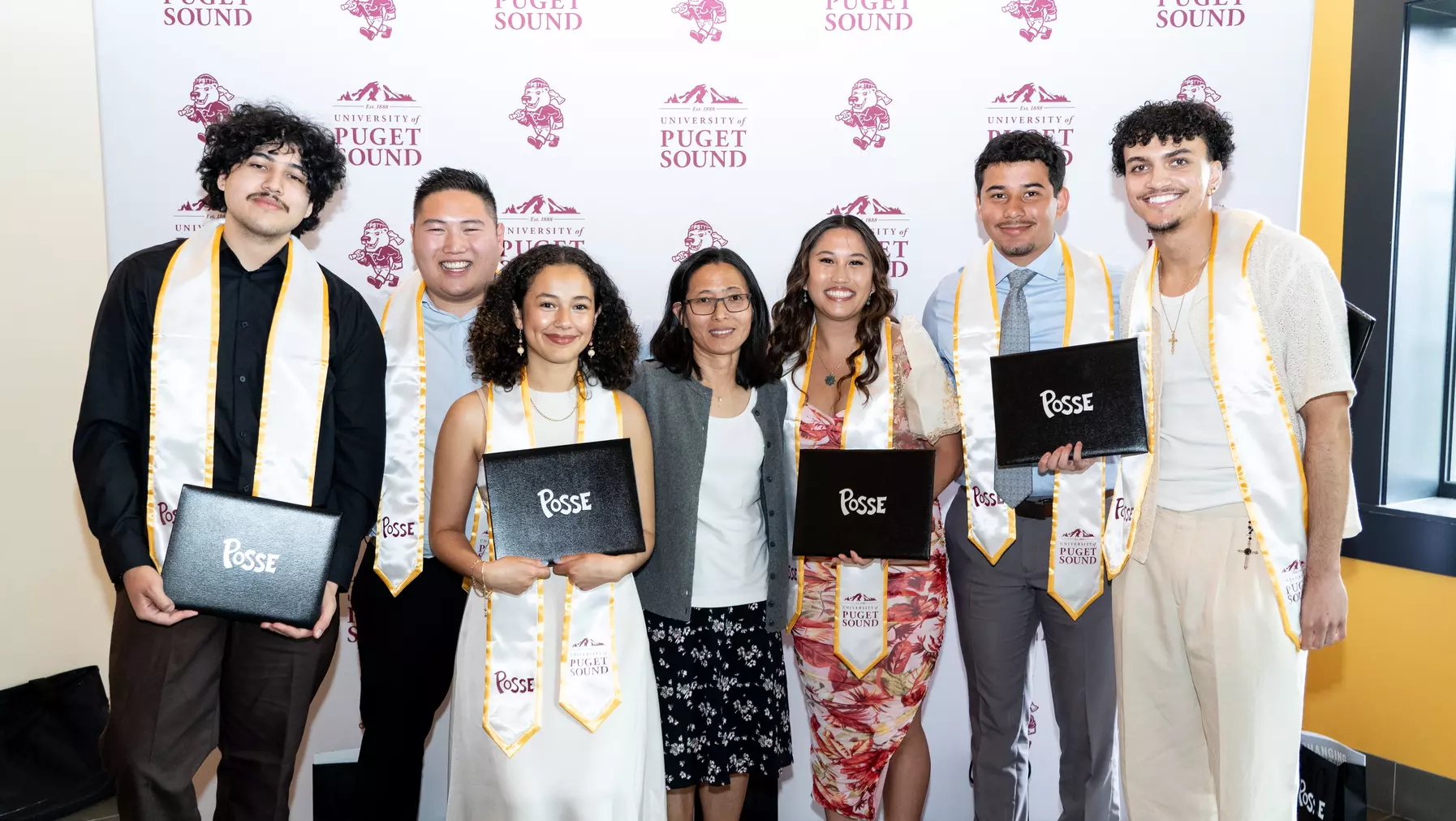
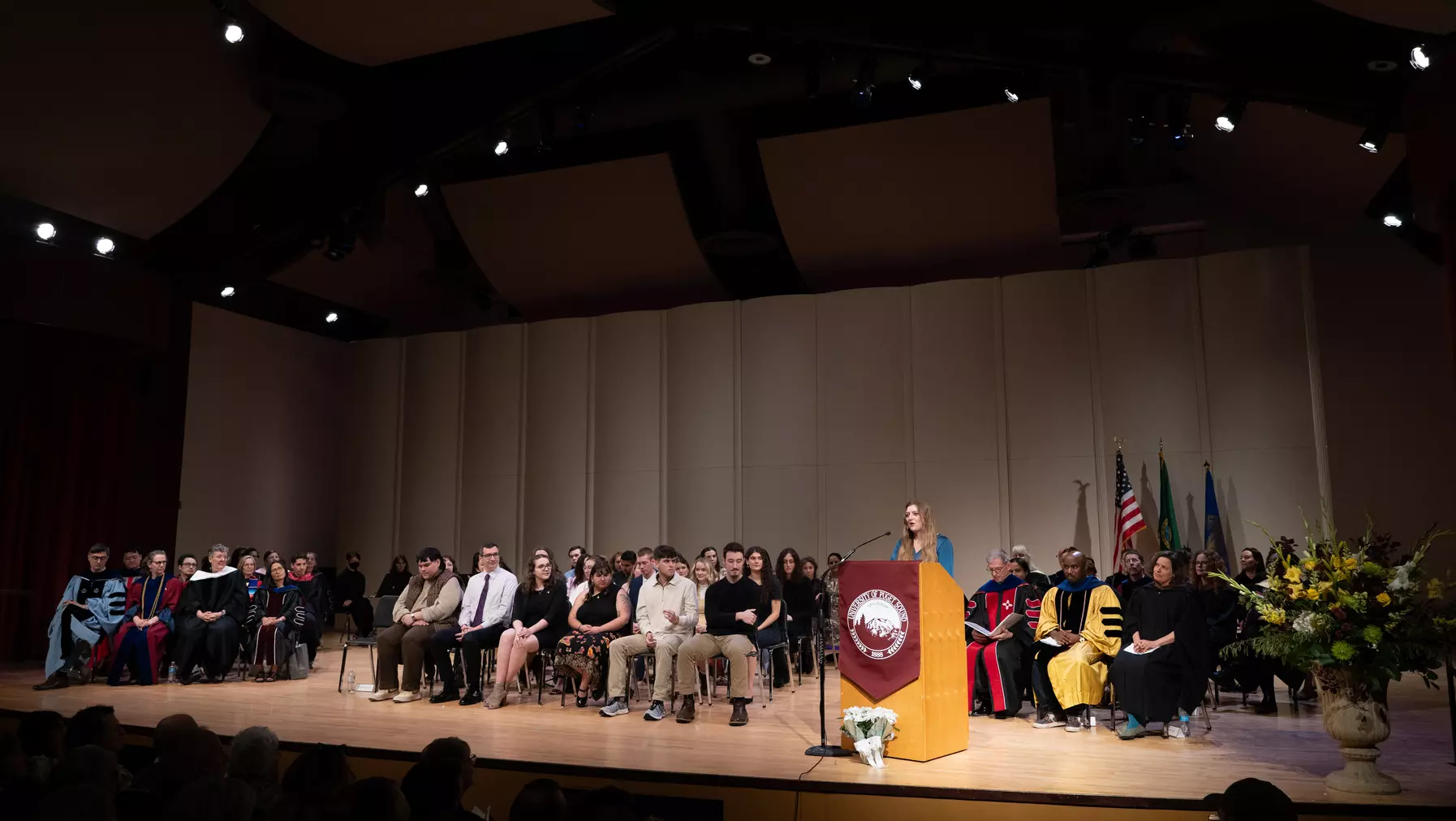
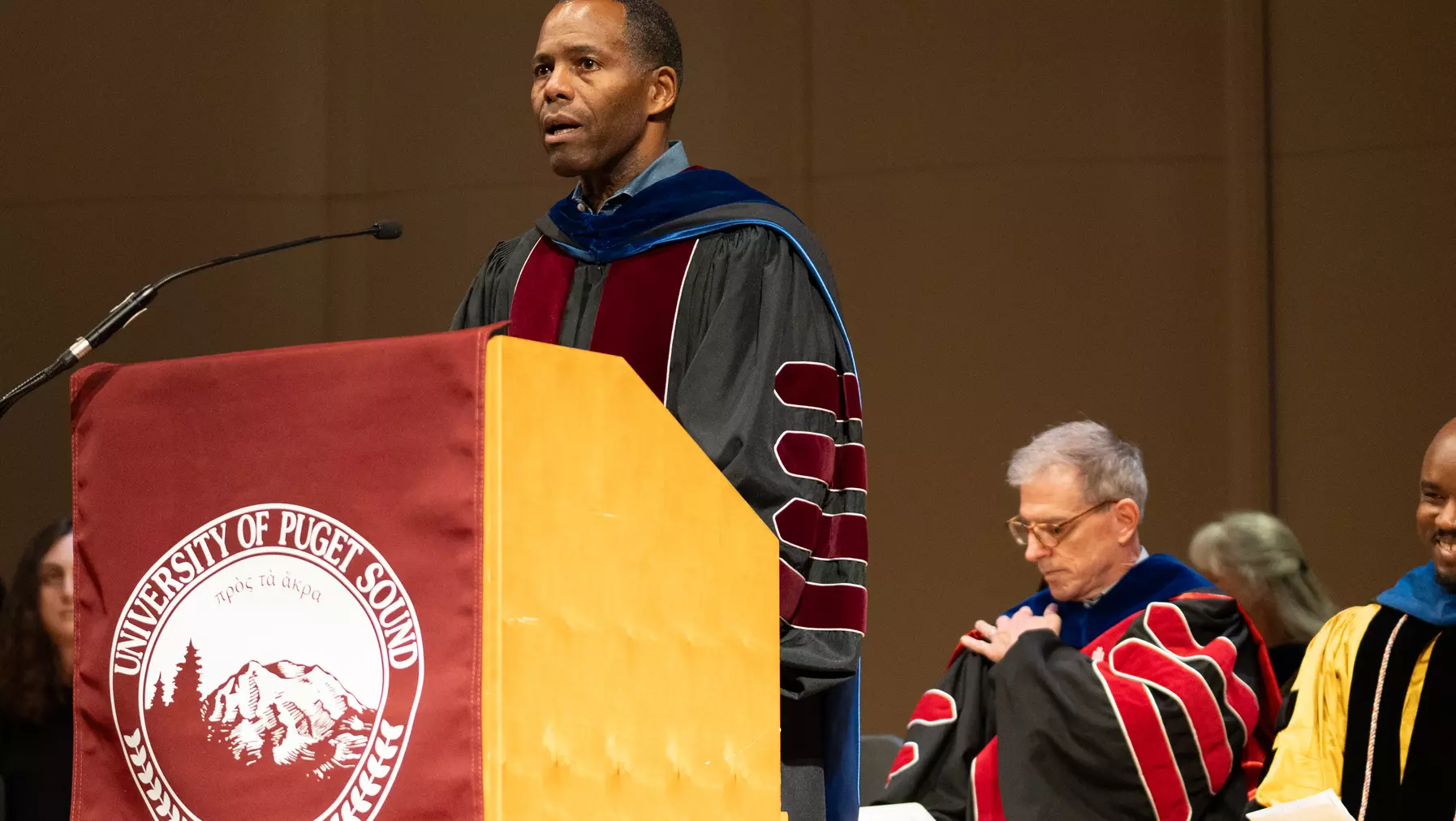
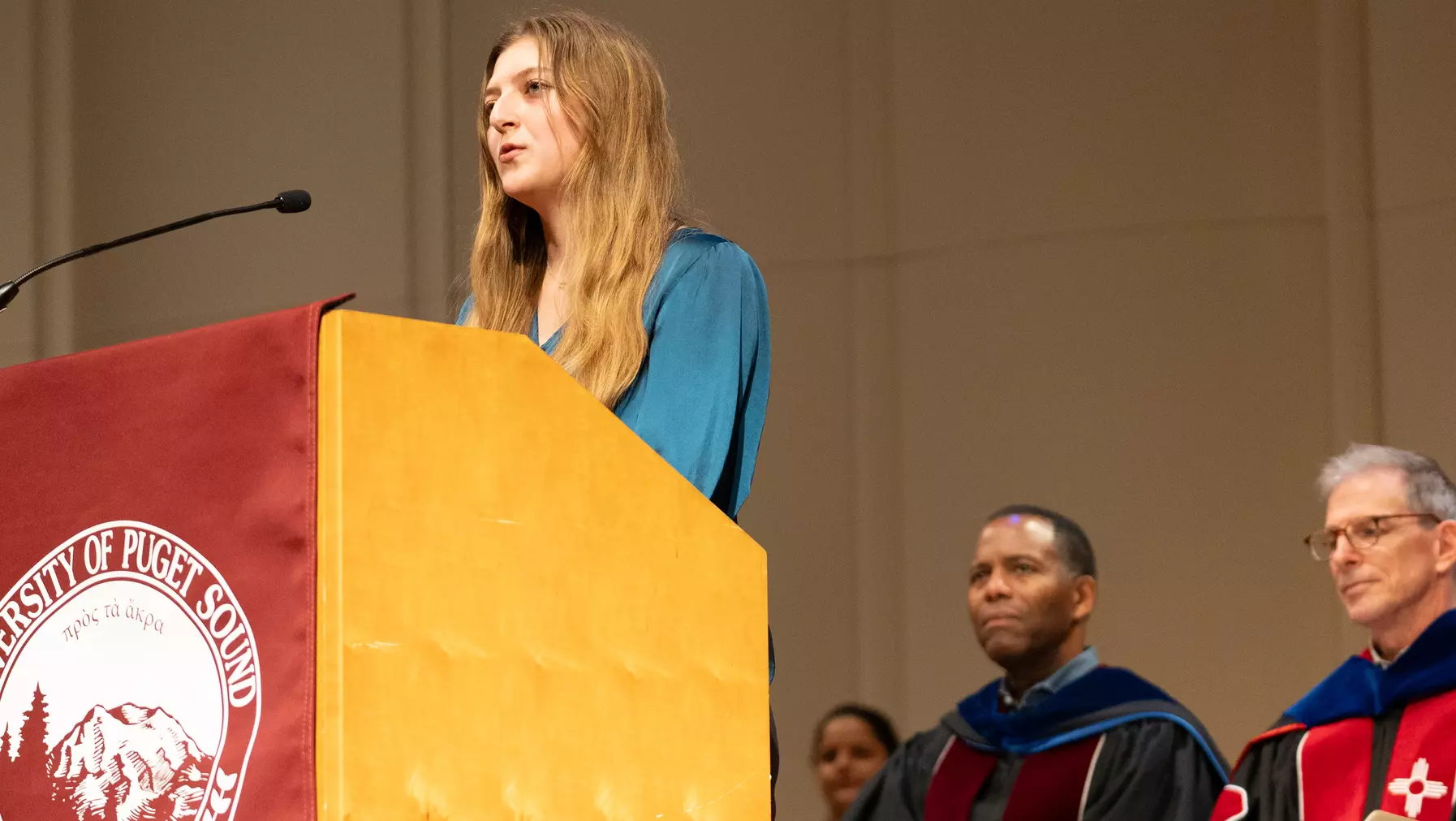
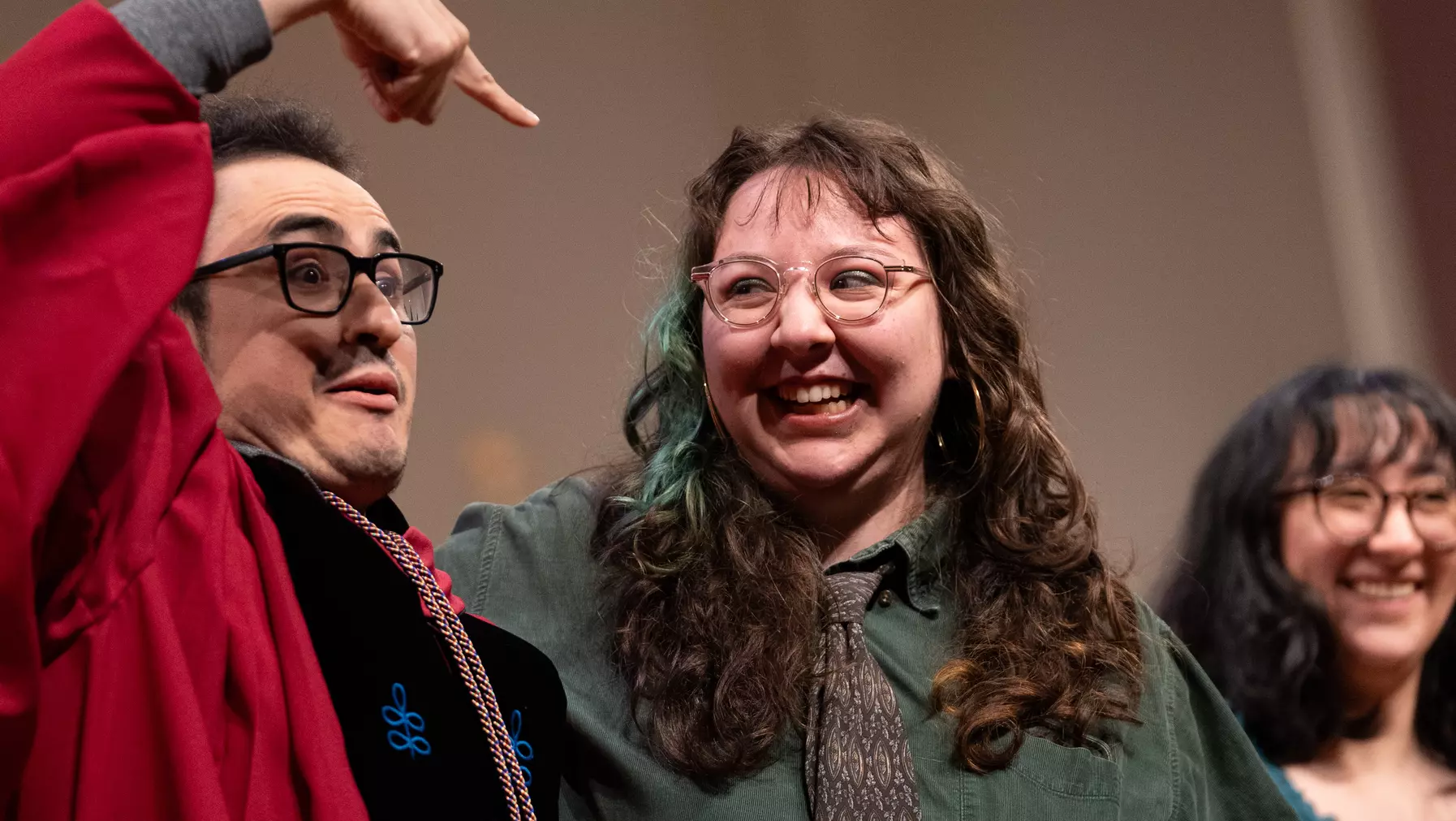
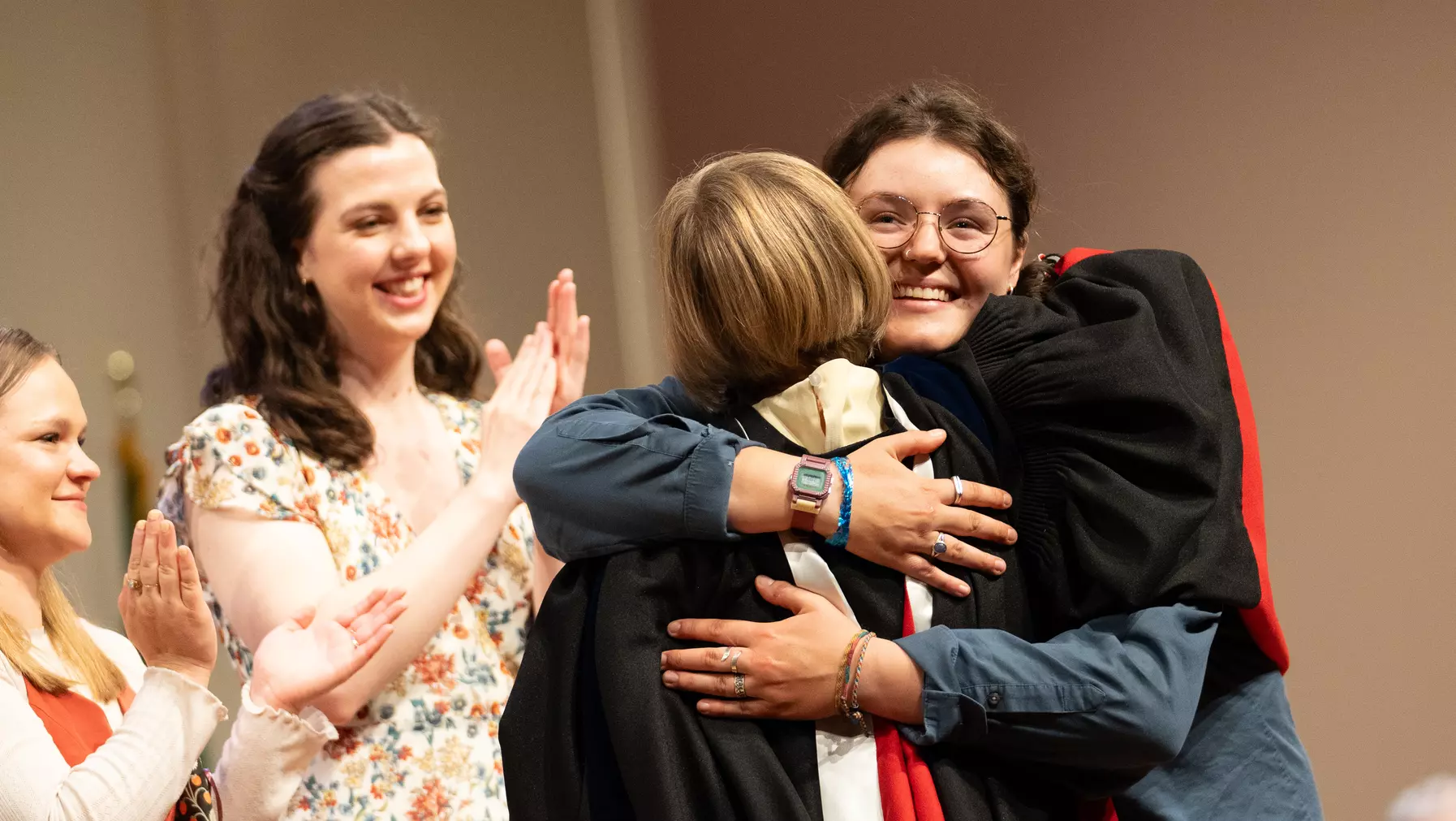
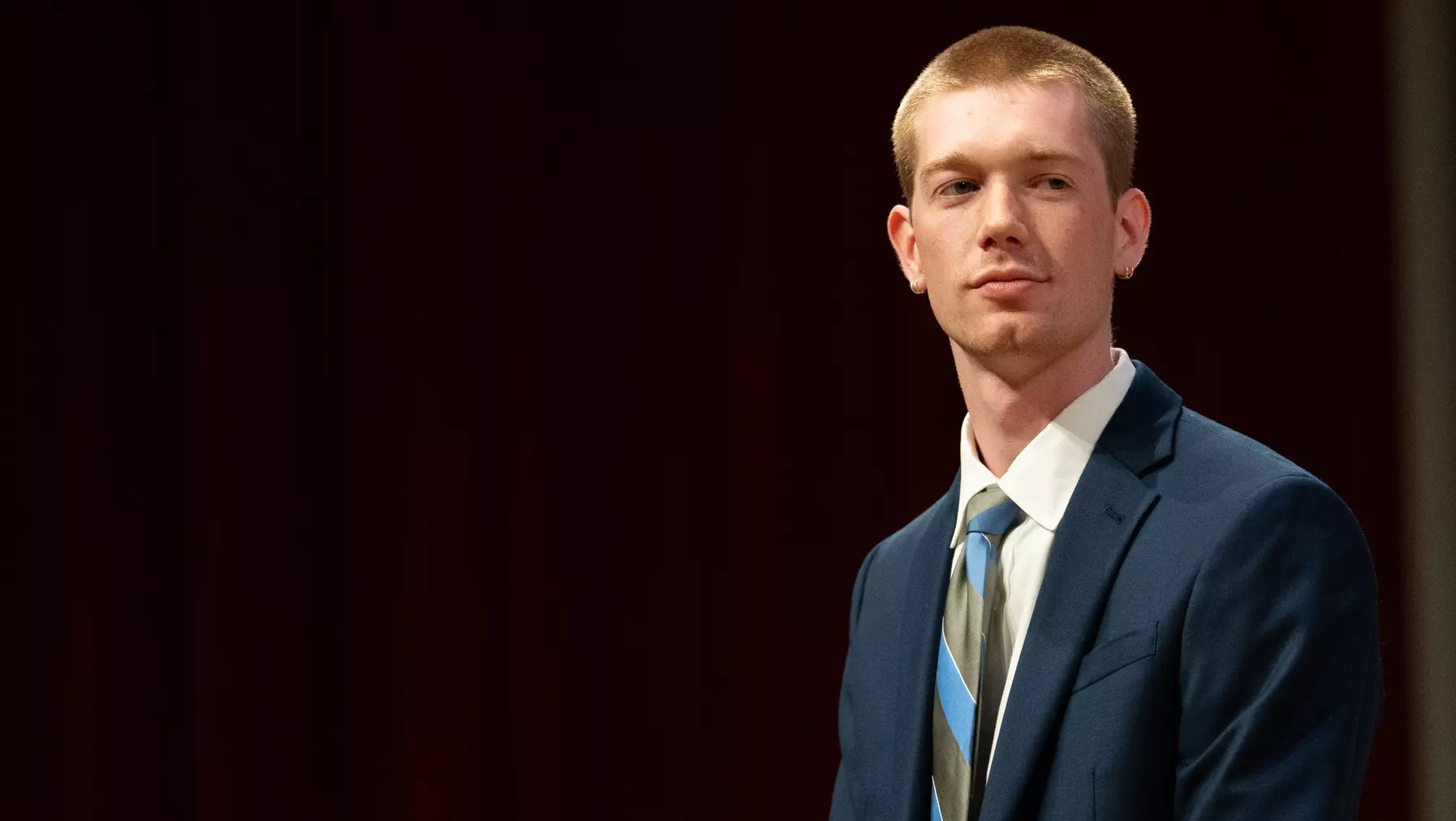

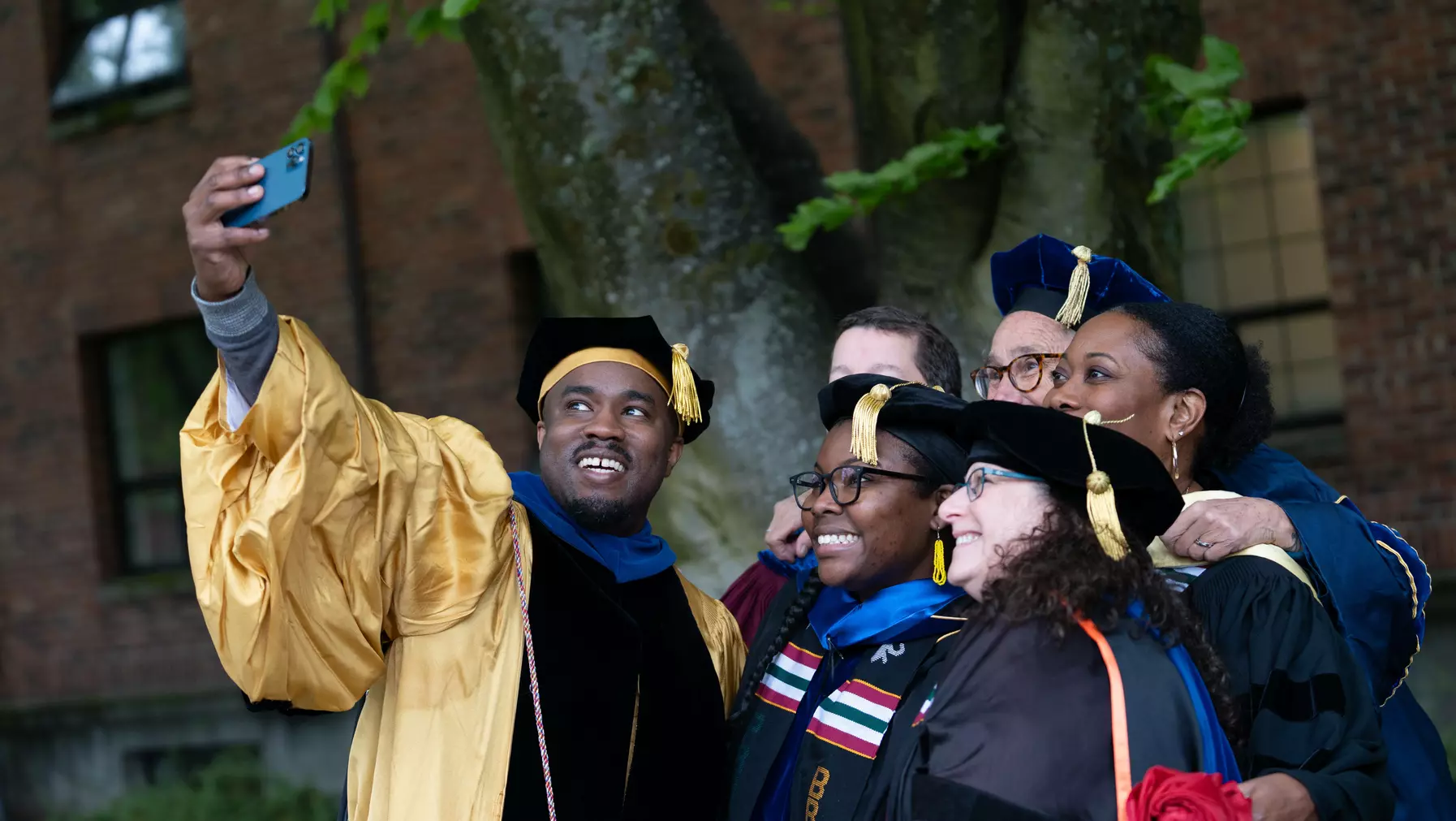
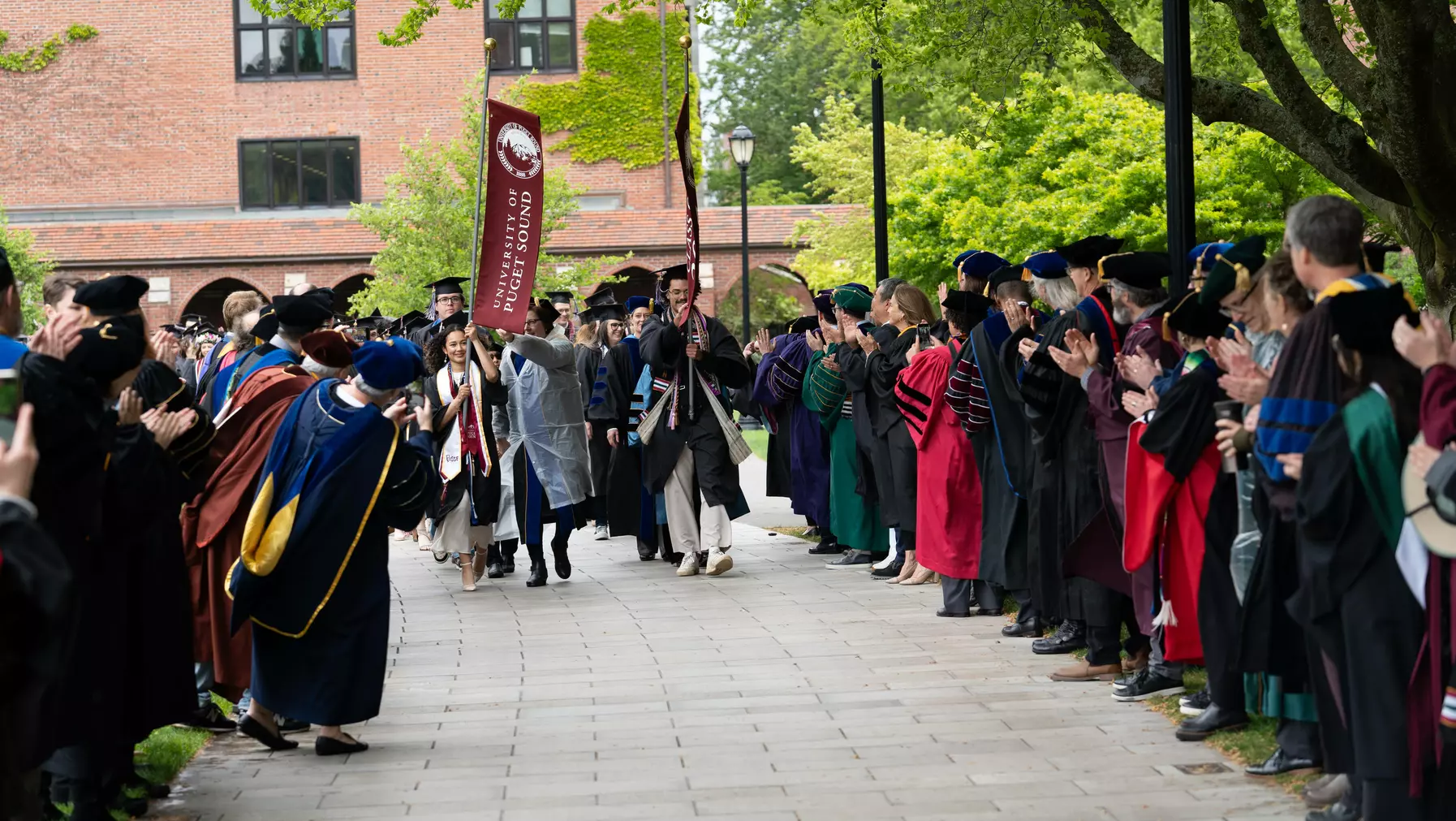
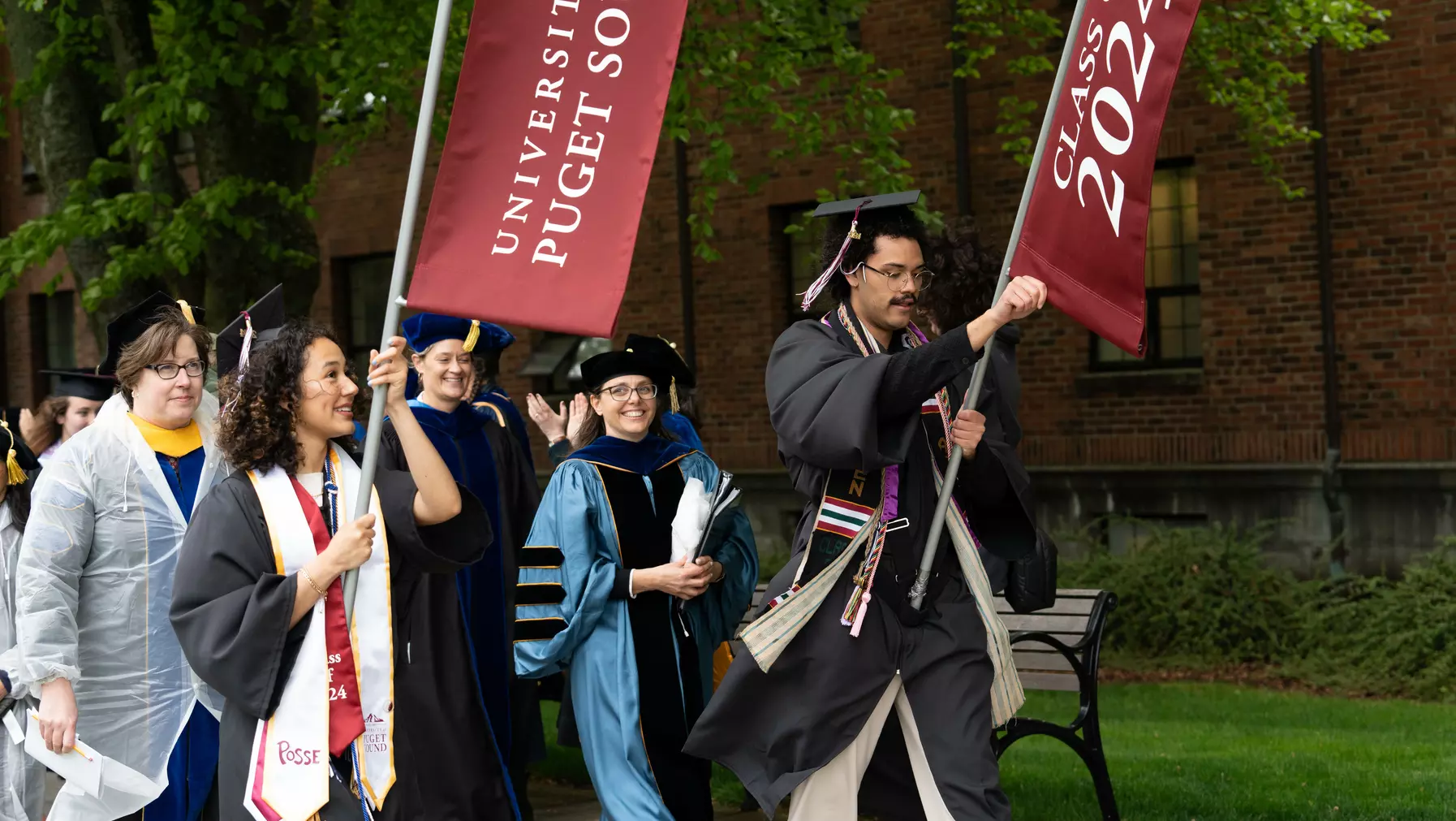
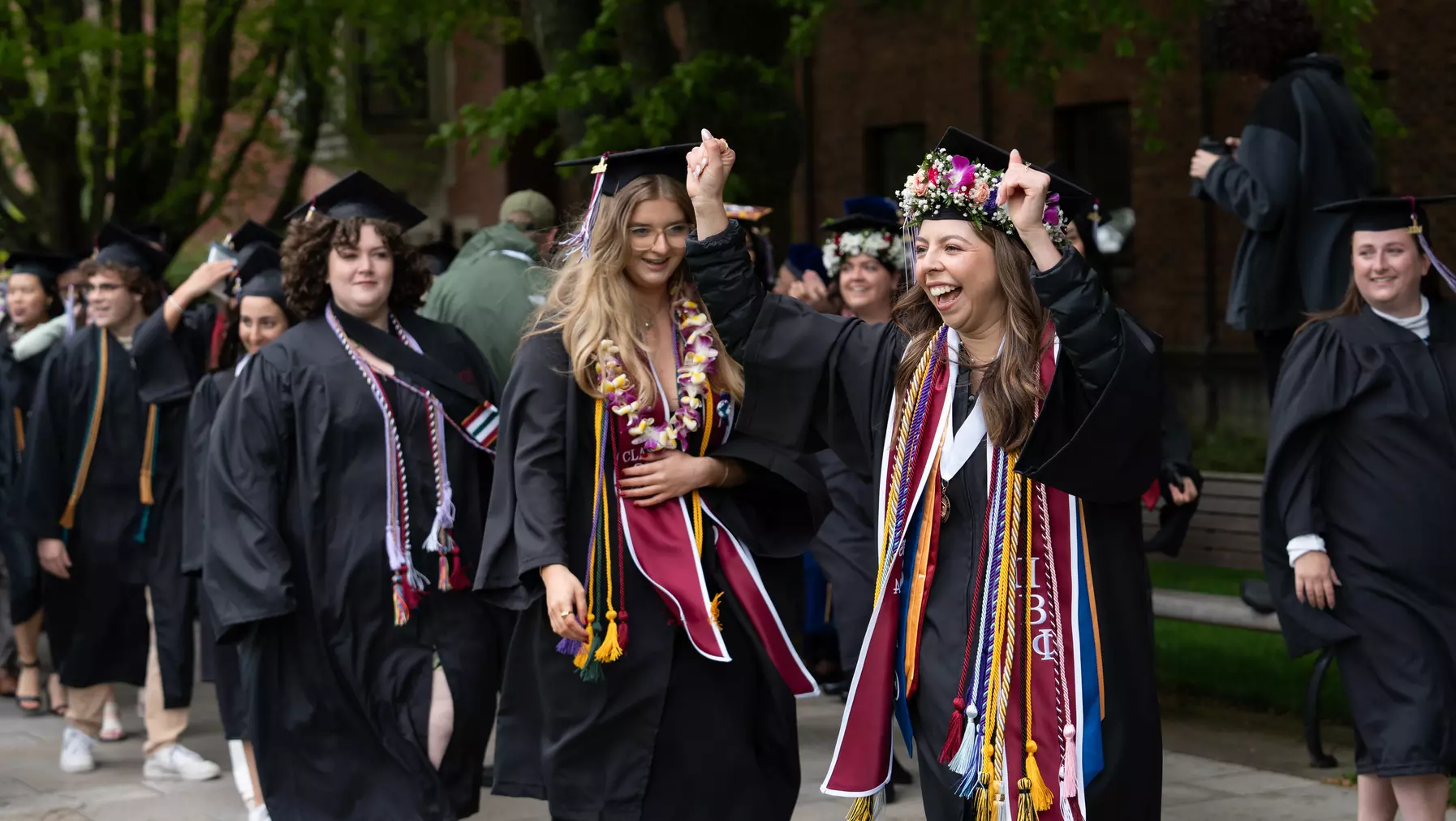
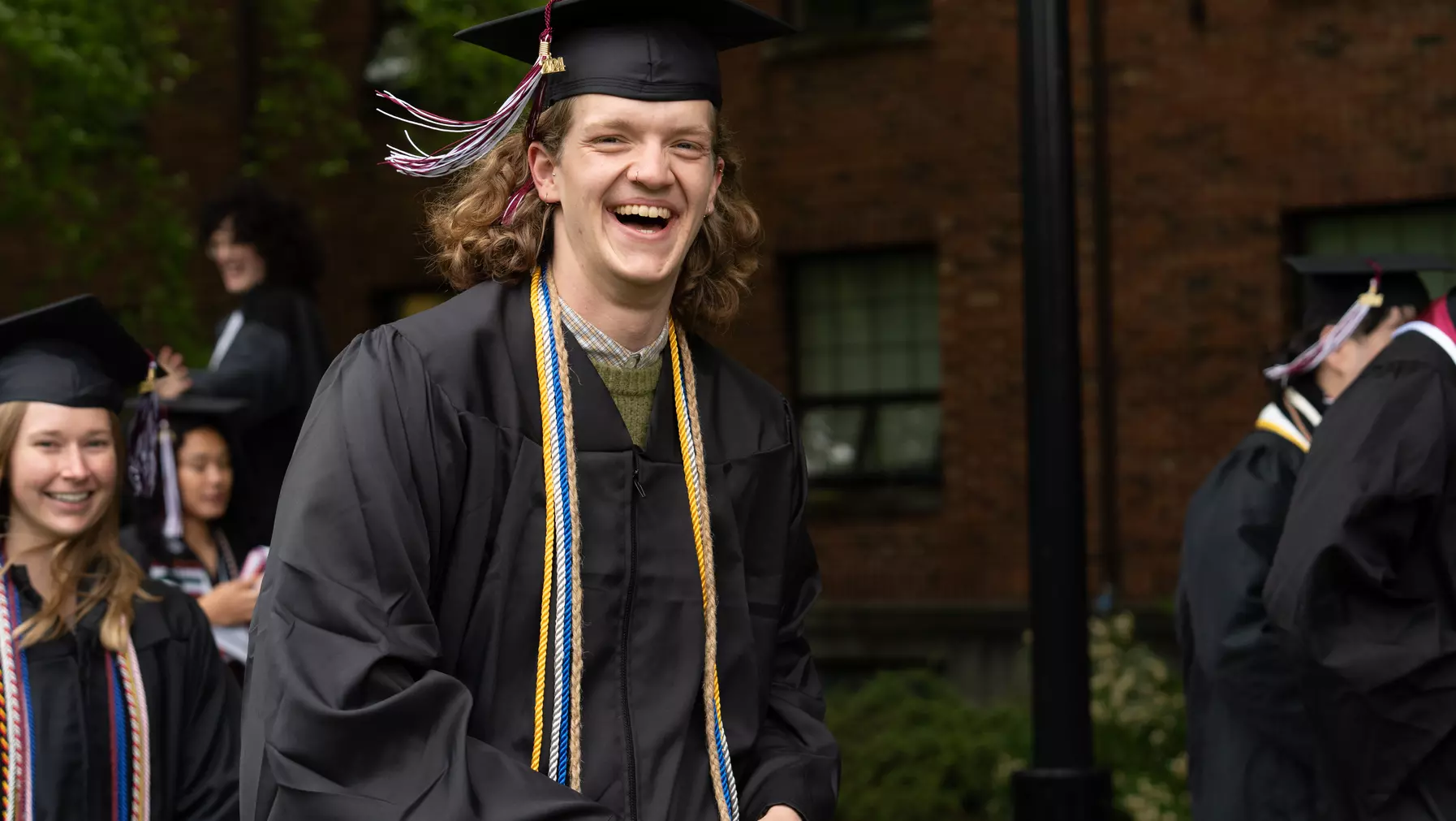
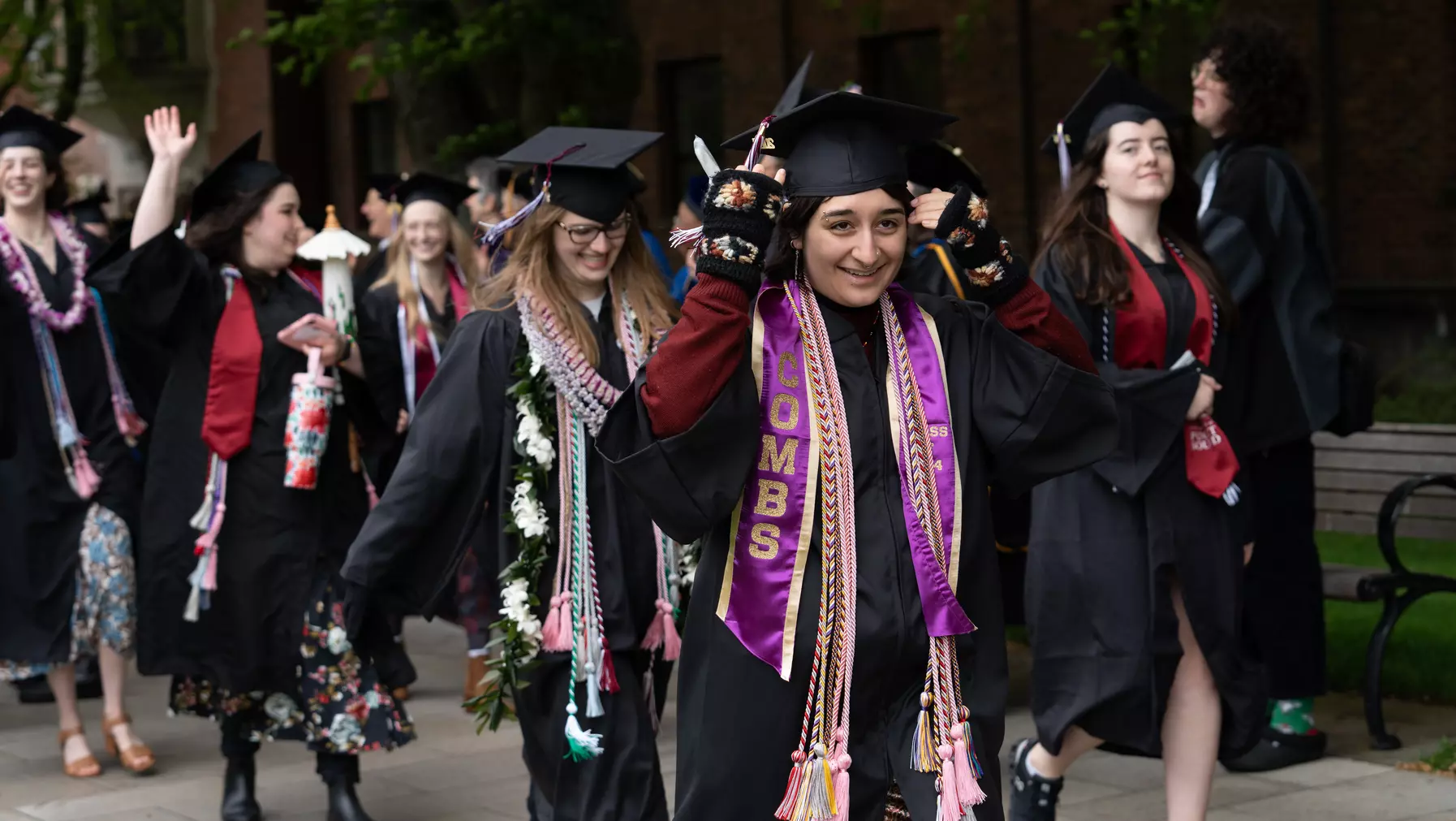
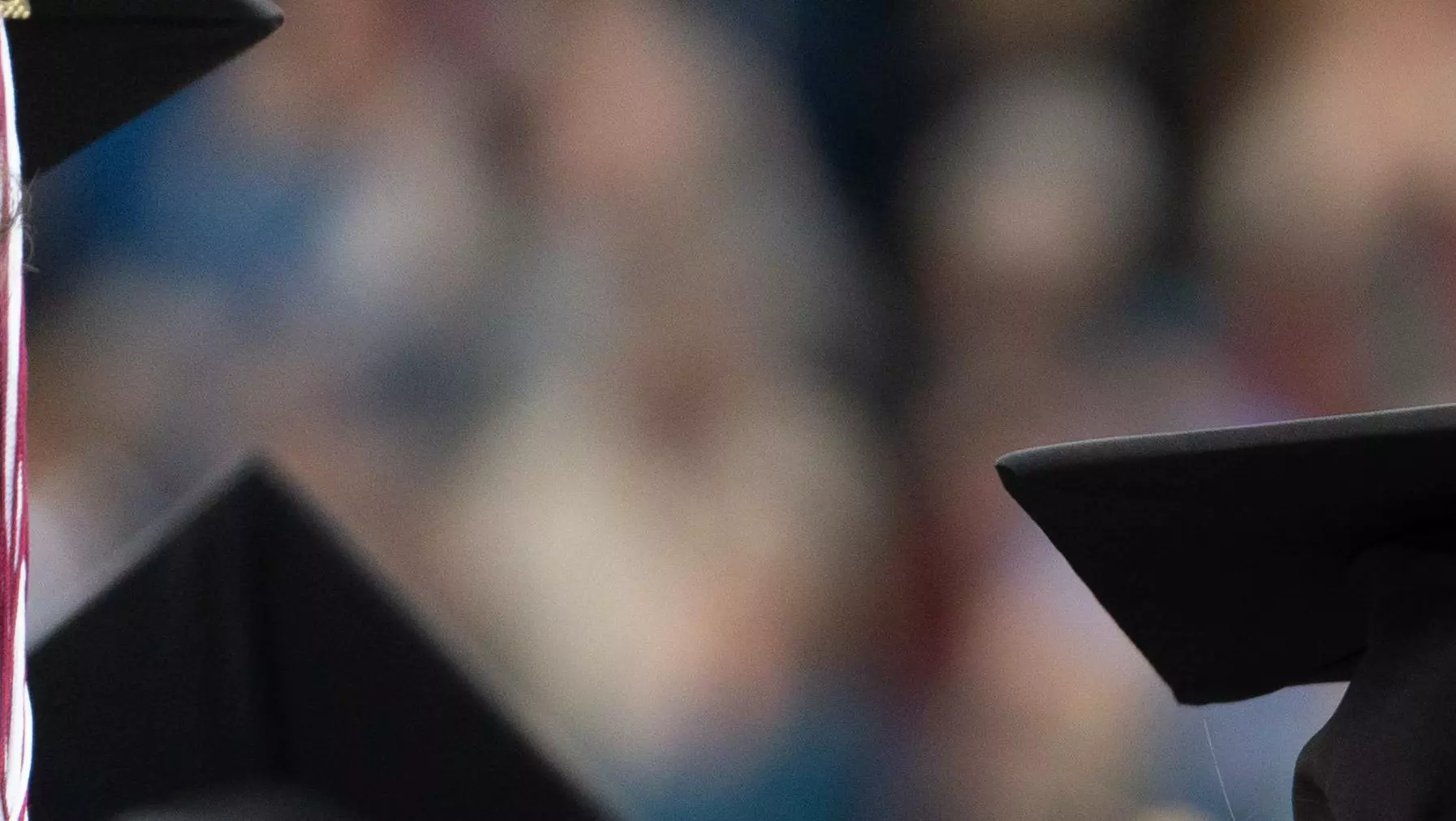
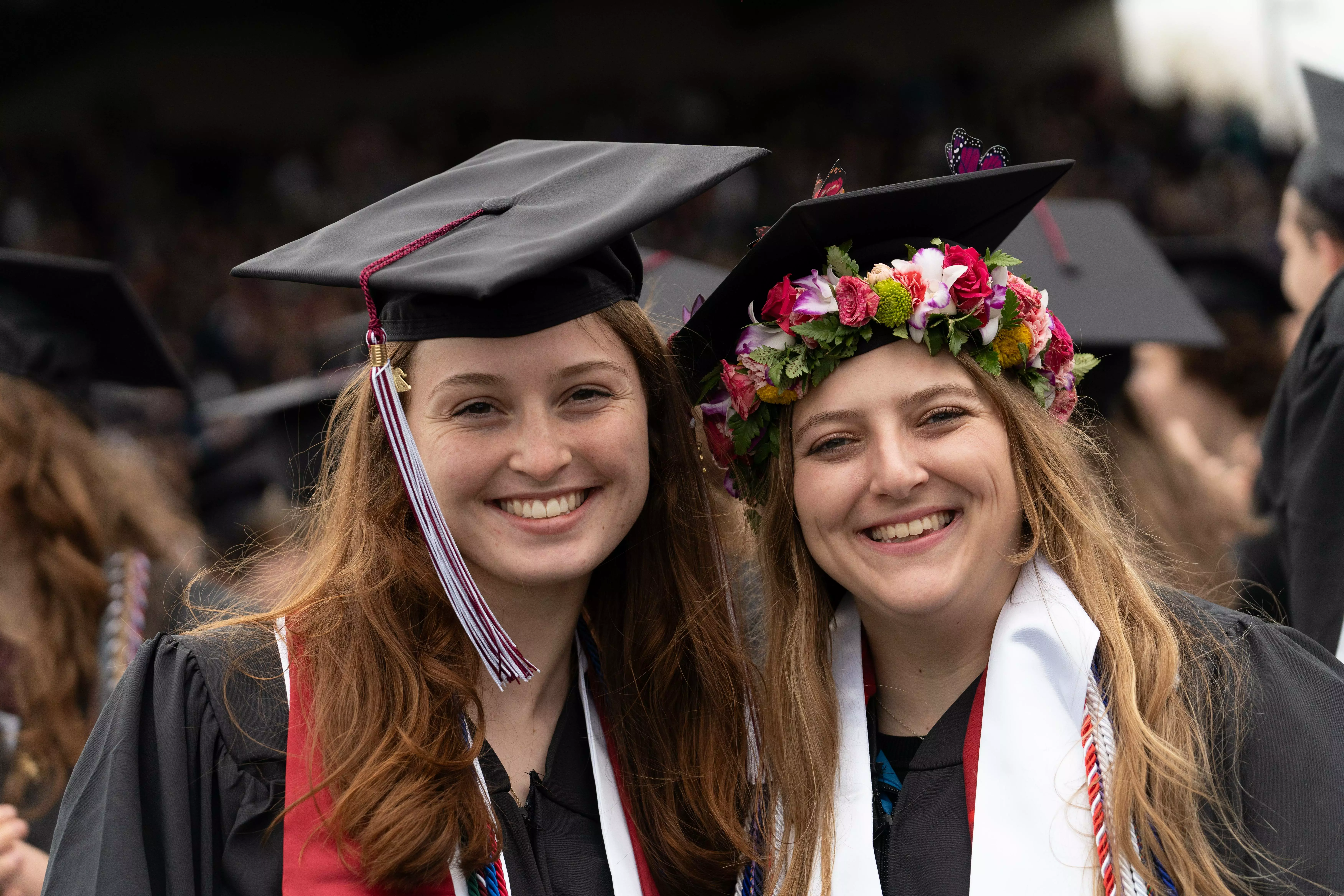






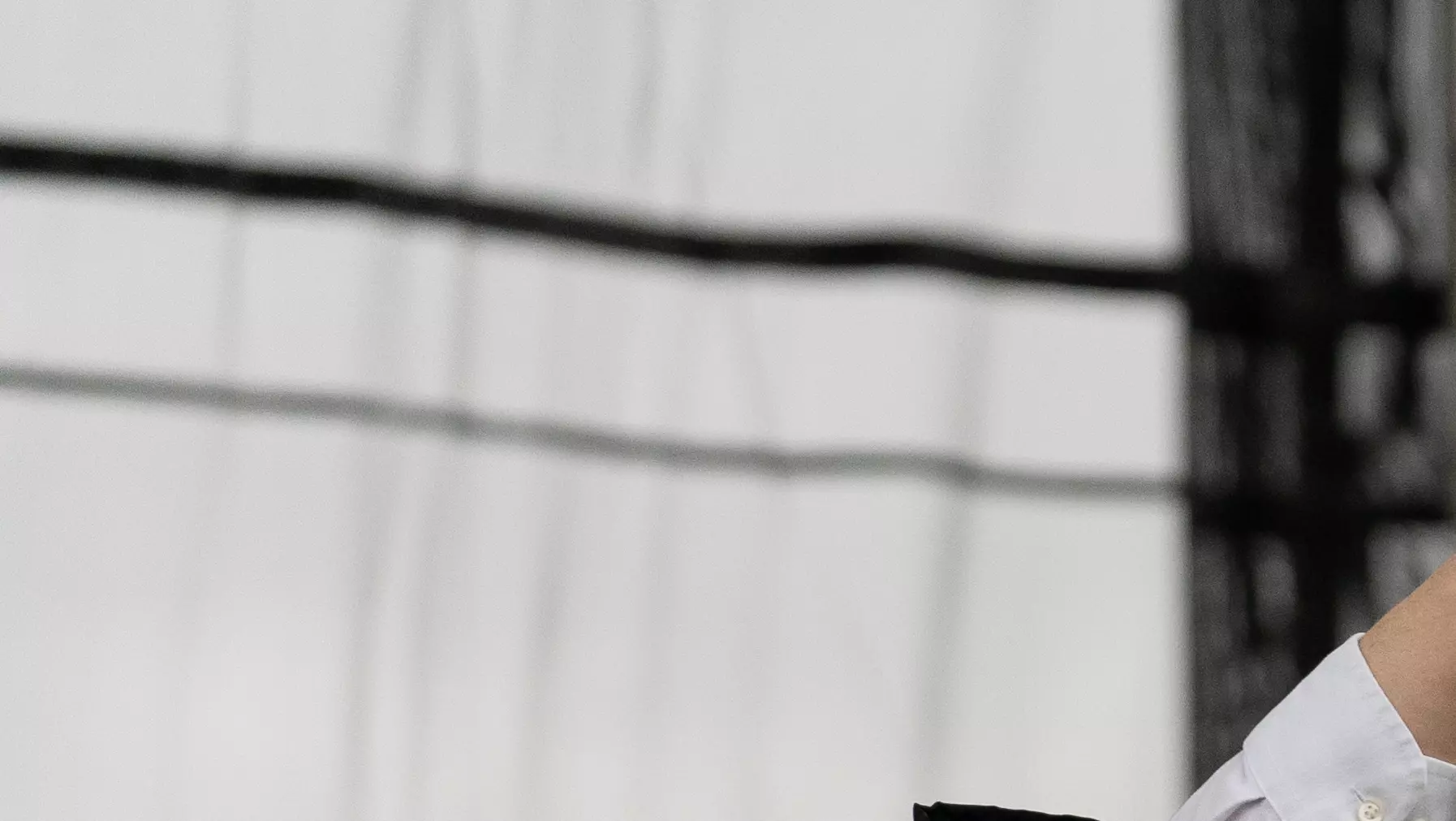





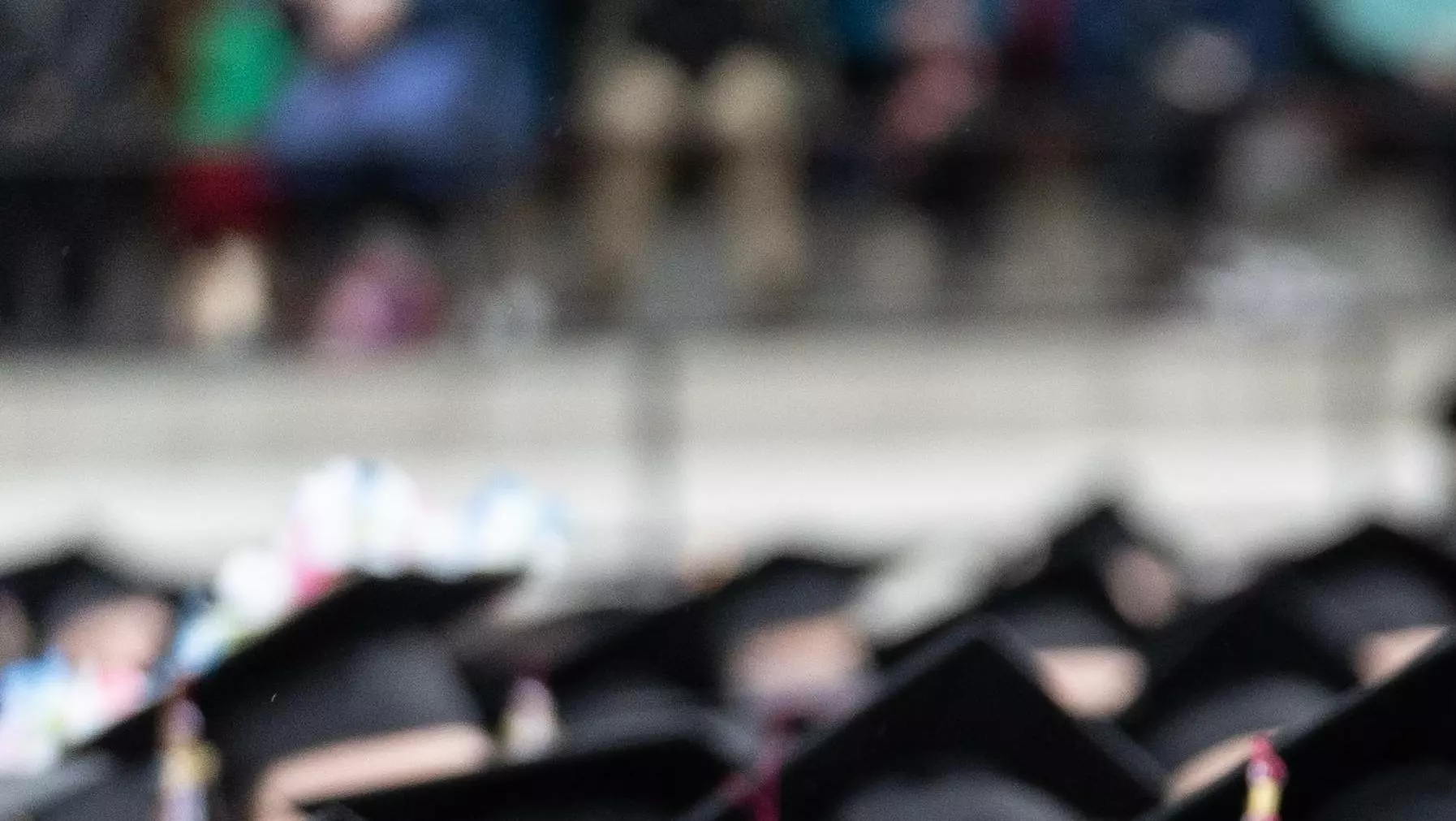






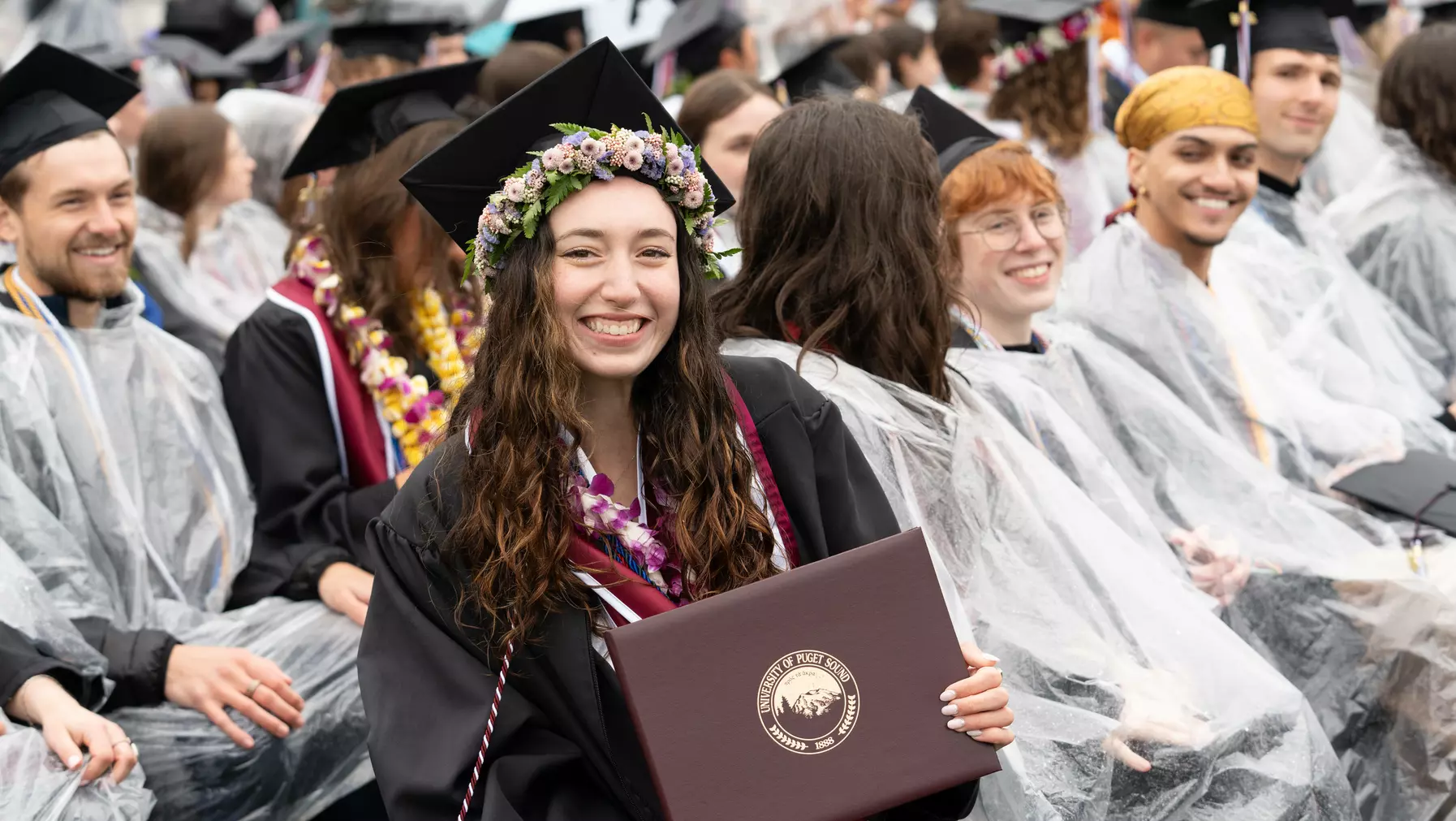

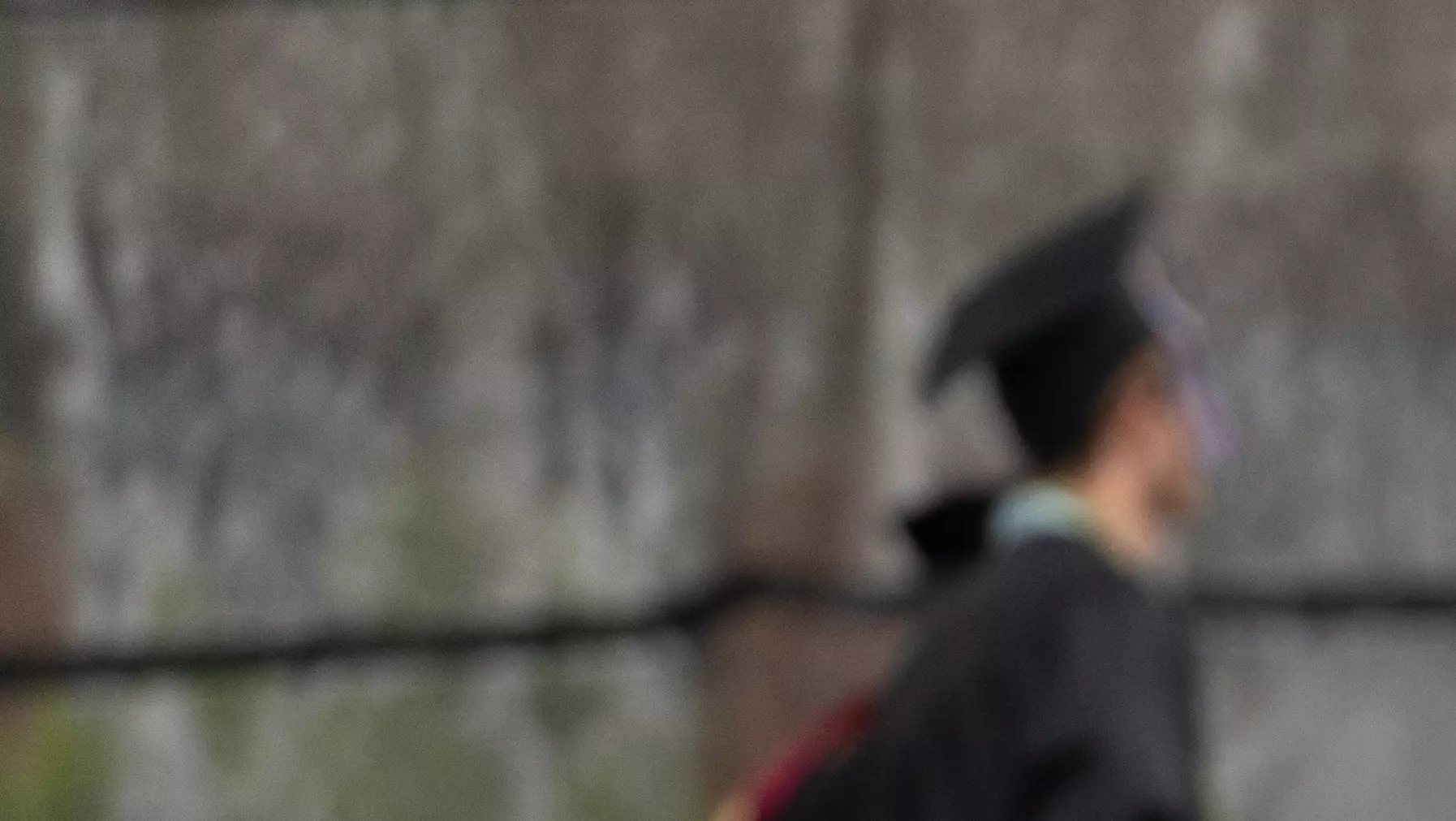

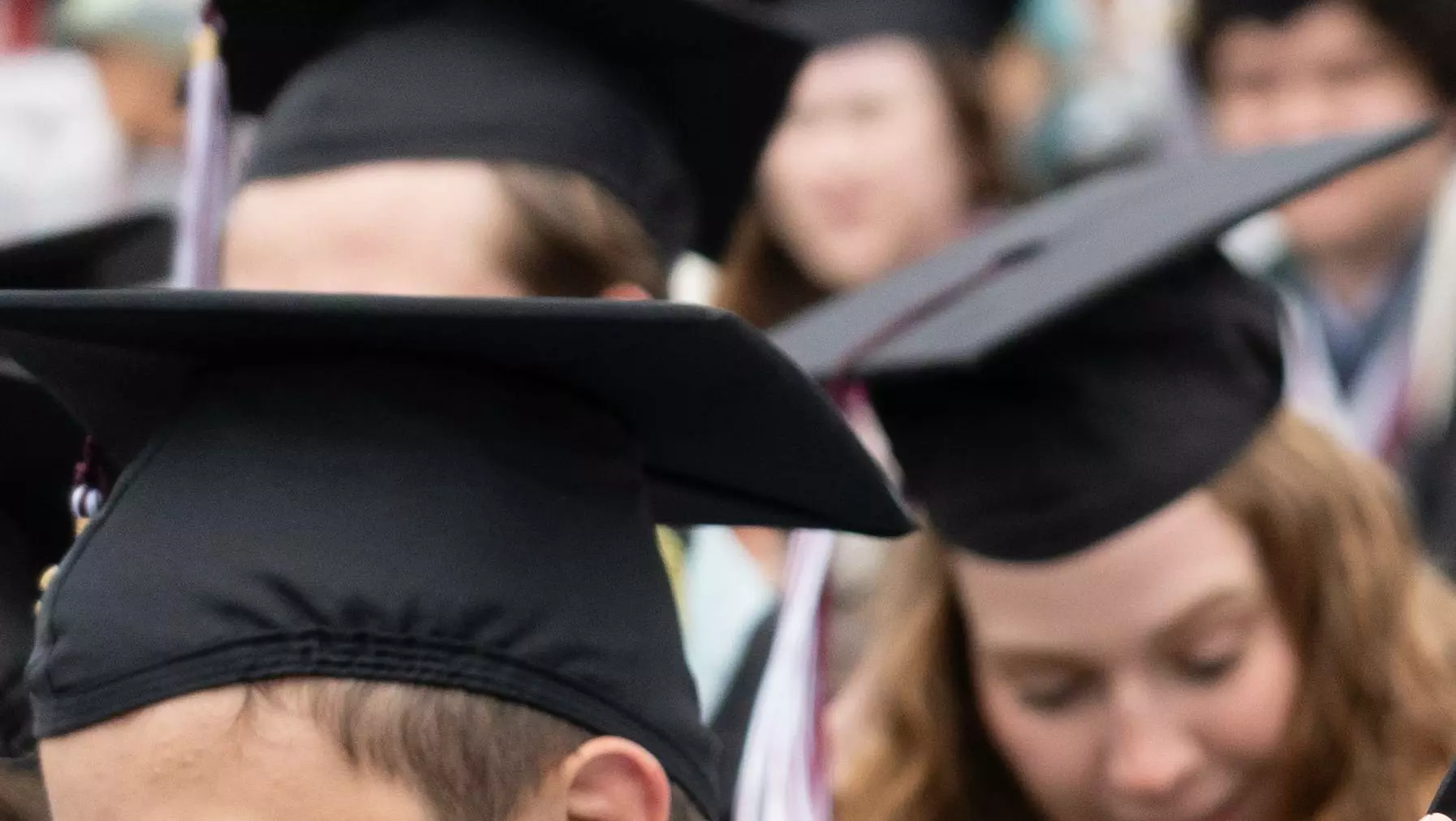
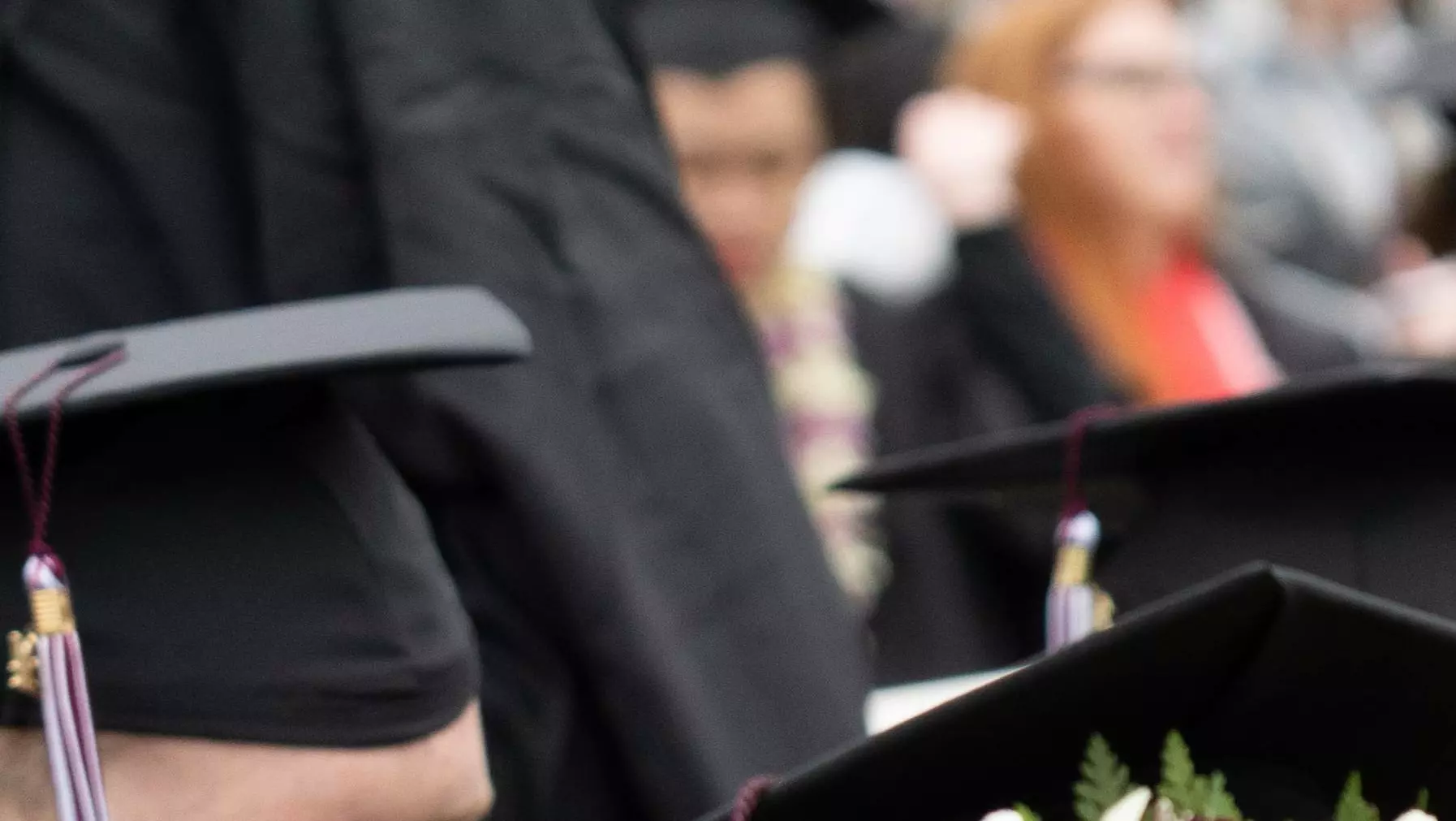
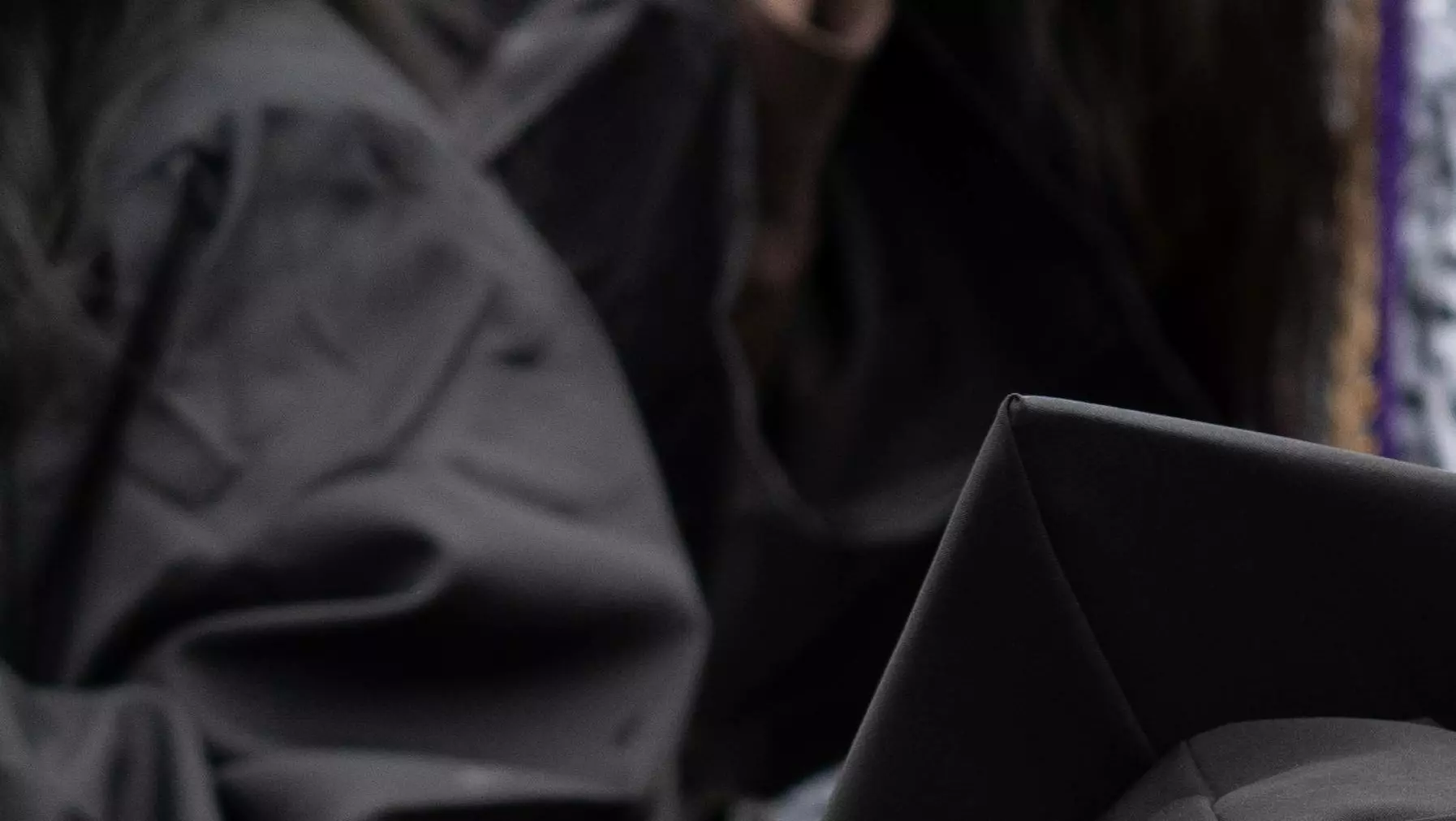

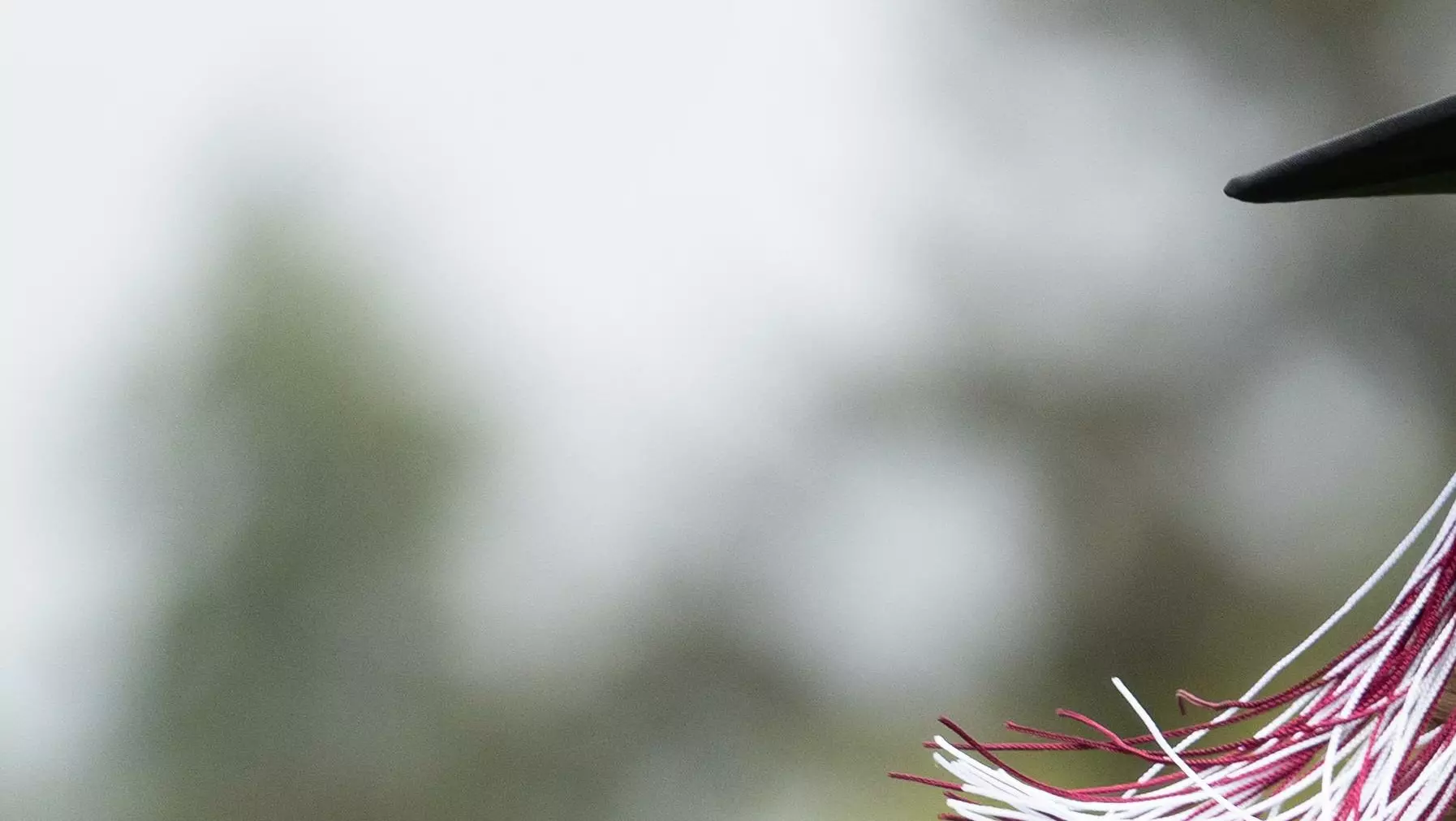



Bernard Bates taught and conducted research work in planetary astronomy, exploration of the solar system, space technology, and any lights in the sky, including, U.F.O.s. He has worked with lunar soils, studying whether the composition of the soils could be revealed through the way they interact with light. He has also explored micrometeorites recovered from the ocean floor. Bates has been quoted widely in the media on space exploration, alien life, and astronomical phenomena, including in The Atlantic, Popular Mechanics, Computer World, Live Science, KPLU Radio, The Loop, and The News Tribune. Bates credits the Apollo program for his interest in pursuing planetary astronomy throughout college and graduate school. He regularly gives public talks on astronomical topics, including one of his most popular presentations—about searching for extraterrestrial life with a home computer. He taught courses on Mars exploration, the search for extraterrestrial intelligence (SETI), and astronomy.
Lynda Livingston taught introductory corporate finance, as well as advanced electives in financial markets, investments, valuation, and portfolio management. She holds the top professional investment credential, the Chartered Financial Analyst (CFA) designation, which informed her teaching. She is the founder and president of the not-for-profit financial education corporation, Four Horsemen Investments, which offers scholarship and research opportunities to Puget Sound students.
Eric Orlin is a Roman historian whose primary interests center on the religious practices of the ancient world. He has studied how religious practice shapes and reflects cultural identity, and he has looked at what the similarities and differences in religious practice across the ancient Mediterranean reveal about the peoples inhabiting that world. He has also explored how memory is shaped by religious practices and how those memories in turn shape the development of a society. Orlin is general editor for the Routledge Dictionary of Ancient Mediterranean Religions (Routledge, 2015), and is working on the book Republican Rome: A Social and Cultural History. Previously, he wrote Foreign Cults in Rome: Creating a Roman Empire (Oxford University Press, 2010), which explores how religion contributed to the reshaping of the Roman sense of identity in the wake of their transition from a single city to the dominant power in the Mediterranean basin. Orlin suggests that the methods by which the Romans absorbed cults, priests, and practices allowed them to recreate a clear sense of community that could include the people they had conquered. His earlier book, Temples, Religion and Politics in the Roman Republic, discusses the connections between politices and the construction of new temples in Rome. Orlin has published numerous articles in professional journals and regularly gives public presentations. He taught Greek and Roman history, as well as classical languages.
Bradley Richards holds B.A. degrees in Physics and Computer Science, an MSc in Computer Science, and a Ph.D. in Computer Science from the University of Wisconsin-Madison, where his research was on custom memory-system support for distributed shared-memory parallel computers. In addition to his continuing work on parallel and distributed computing, Richards is active in Computer Science education, having authored numerous papers on pedagogy and curricular issues. He has taught at Puget Sound since 2005.
In teaching, advising, research, and service, Amy Ryken is deeply interested in the lifelong journey of the teacher each of us hopes to be, in engaging in teaching and learning as intellectual and humanizing acts, and in confronting biases and inequities in the personal and institutional relations of our daily lives. Ryken studied teacher learning, how to create equitable classroom spaces and partnerships that foster connections between schools and community resources. Throughout Ryken's time at Puget Sound, they actively pursued culturally responsive practice and contributed collaboratively to the ongoing work of equity. Ryken was significantly involved with diversity and inclusion initiatives on campus such as serving as chair of the Committee on Diversity; co-leading the initiative to add the Knowledge, Identity, and Power (KNOW) graduation requirement; serving on the Diversity Advisory Council; co-founding the Transgender Advocacy and Inclusion Committee; supporting the work of the Race & Pedagogy Institute; serving on the Gender & Queer Studies Advisory Board; and leading the Advancing Systemic Equity grant work to center race and community in the MAT curriculum.
Leslie Saucedo's research focus is understanding the mechanisms that allow for unregulated cell growth—a basic hallmark of cancer. Cancer has long been understood to be a genetic disease; there are more than 100 genes implicated in promoting cancer when they are mutated. In particular, Saucedo uses fruit flies as a model for the underlying genetic changes that subvert the normal biology of cell growth and division. Fruit flies share with humans more than two-thirds of the genes known to play a direct role in human disease. Saucedo and her students focus primarily on the protein PRL-1 in regard to human cancer biology. While elevated levels of PRL-1 are used as a clinical marker to stage advanced cancers, Saucedo's work focuses on how misregulated PRL-1 functionally contributes to cancer. Uncovering such specific mechanisms in model organisms such as fruit flies is often the first step for developing targeted therapies to halt cancer progression. Saucedo's genetic research has been funded by the National Institute of Health and the National Cancer Institute. Her published work in journals such as PLOSONE, Mechanics of Development, Nature Reviews Molecular Cell Biology, and Nature Cell Biology has been well-cited in the field. Saucedo taught courses in areas including Genetic Determinism, Cell Biology, and Cancer Biology.
Carolyn Weisz is a social psychologist with research interests in racism, homelessness, and social perception. Her recent research on homelessness, conducted in collaboration with other scholars and with the Pierce County Department of Community Connections, has focused on racial disparities in homelessness; links between stigma, psychological distress, and physical health; trauma; smoking; emotional labor among service providers; and organizational diversity climate. Weisz played an integral role in the research, development, and evaluation of Project PEACE—a series of dialogues between community members and the Tacoma Police Department—and was lead author of a report on the event. Her past work on social identity includes published papers on friendship (with Lisa Wood) and on outcomes of substance abuse treatment. She also co-authored the article "Being Teacher-Scholars in a Liberal Arts Setting," in Dialogue: Newsletter of the Society for Personality and Social Psychology (2010). Weisz served on the leadership team of the university's Race & Pedagogy Institute. She volunteers in the Diversion Program of the Pierce County Juvenile Court and serves on the Board of Directors of the Fair Housing Center of Washington. She taught in the area of statistics and research methods.
Roger Allen taught courses on clinical anatomy, neuroscience, functional neuroanatomy, and psychological aspects of physical therapy practice. In addition to his physical therapy degree, he holds a Ph.D. in psychophysiology, MSEd in health education, and B.S. in both psychology and biology. His physical therapy practice specialized in the treatment of people who experience chronic pain, with emphasis on the treatment of complex (and often surprising) relationships between our bodies, our minds, and mechanisms within the human brain. His primary research work now explores delayed modulation mechanisms of neuropathic pain. He is author of three textbooks, along with chapters in the three most recent editions of the encyclopedic benchmark reference, Bonica's Management of Pain. He has now made over 100 national and international research presentations at venues including the Nobel Institute for Neurophysiology, World Pain Congress, World Congress of Physical Therapy, World Congress of Neurology, American Pain Society, World Institute of Pain, European Congress of Physical and Rehabilitation Medicine, American Academy of Orthopaedic and Manual Physical Therapists, and regularly at APTA's Combined Sections Meetings and Annual Conferences. His published research has appeared in journals such as the International Journal of Physical Therapy, Psychophysiology, the Journal of Neurological Physical Therapy, European Journal of Pain, Physiotherapy, Physical Medicine and Rehabilitation Clinics of North America, the International Journal of Sport Psychology, and includes an anthologized paper in the science parody Journal of Irreproducible Results. Much of his research was conducted with the integral involvement of his graduate physical therapy students and undergraduate neuroscience interns. These important faculty/student collaborations ignited and nurtured the sparks of exciting fresh insights. So far, more than 100 of his students have presented research at national or international conferences or published their work in professional journals, and four have received international research awards.
In 2005 he was granted a John Lantz Senior Research Fellowship to complete research aimed at mapping neurovascular innervation patterns of peripheral nerves and subsequently received the Brown Sequard Medal from the Institut de Physiologie Nervologie for this work. From the University of Puget Sound, he is recipient of the Dirk Andrew Phibbs Memorial Research Award and the Outstanding Teaching Award (now named the Tom Davis Teaching Award). Prof. Allen was selected in 2016 to deliver the 44th Regester Lecture, "Echoes of Pain in the Neuromatrix" and in 2017 was recognized with the President's Excellence in Teaching Award, presented by University of Puget Sound President Isiaah Crawford.
© 2024 University of Puget Sound